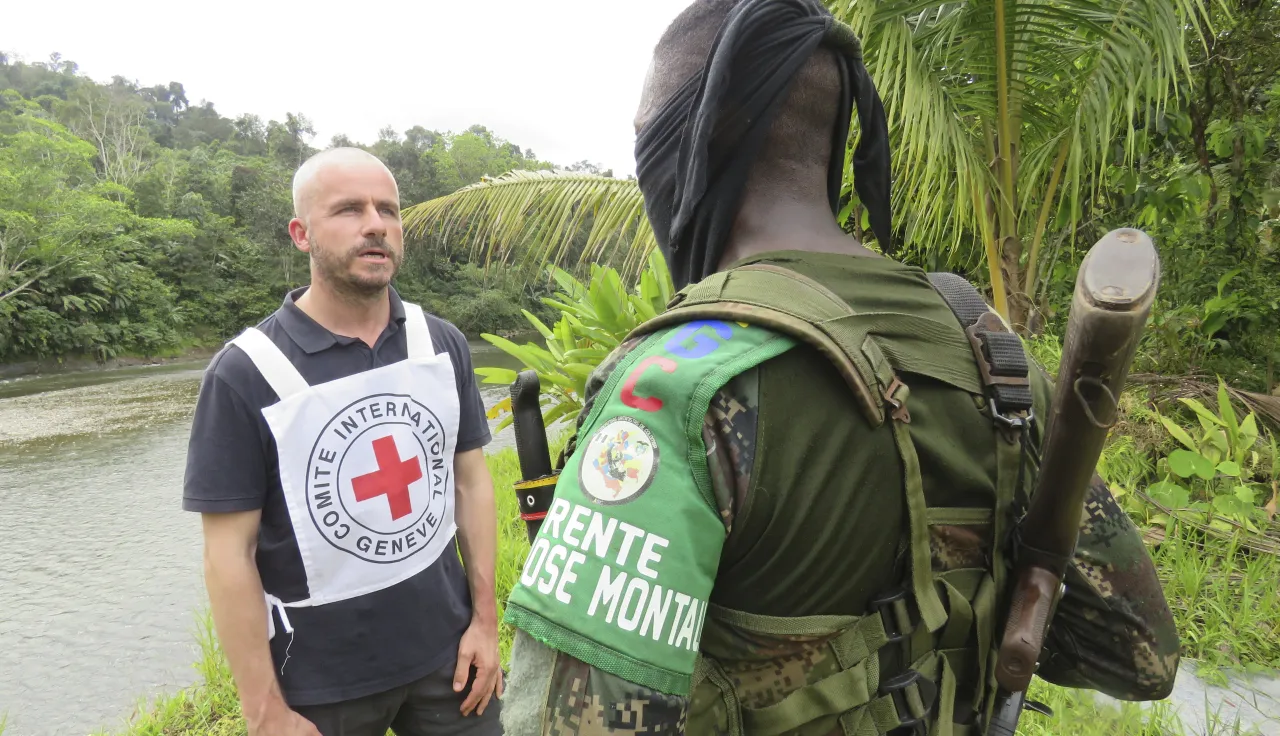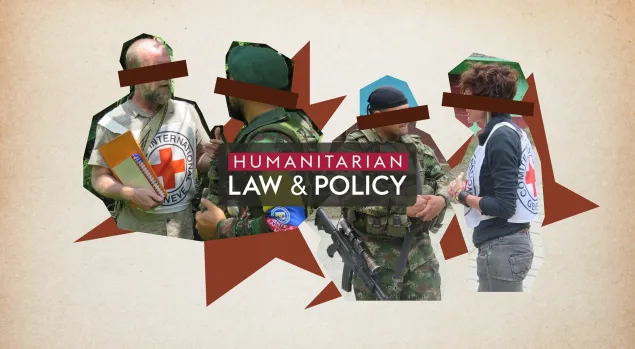Dialogue with regular armed forces
Maintaining dialogue with armed forces is an integral part of the ICRC’s work throughout the world. The aim is to ensure that armed forces at all levels are aware of and apply international humanitarian law and international human rights law in their operations, and to facilitate humanitarian action for victims of conflict.
Most ICRC staff working in the field interact with military personnel in one way or another, whether at checkpoints, when visiting detainees in barracks or when trying to trace missing persons. In addition, 32 specialist delegates, most of them former officers, are posted in a number of delegations around the world, from where they maintain dialogue with the armed forces of one or more countries in their region of assignment. In the event of an armed conflict or disaster, when coordination issues need to be resolved between military authorities and the Movement, the ICRC can reinforce this specialist presence. All ICRC staff contribute to dialogue with the armed forces, within a unified framework: relations with all arms bearers.
ICRC delegates to the armed forces enable the organization to get to know them better and to maintain contacts with key people at different levels. They also facilitate ICRC operations by familiarizing military circles with its mandate, operating methods and activities, as well as with the applicable legal framework. To this end, they participate in conferences, exercises or briefings prior to the deployment of troops.
Specialist delegates support the efforts of the armed forces to disseminate the rules of international humanitarian law or human rights law, to integrate these rules into military doctrine, training and instruction, and to establish a system of disciplinary and criminal sanctions for violations of the law. They provide support to their ICRC colleagues or engage in direct dialogue with the armed forces on issues relating to the conduct of hostilities or the maintenance of order. Delegates working in the field benefit from the support in their dialogue with the armed forces of a specialised unit at ICRC headquarters: the unit responsible for relations with arms bearers.
Publications and factsheets
- Integrating the Law
- Violence and the Use of Force
- Anti-Personnel Landmines: Friend or Foe?
- Handbook on International Rules Governing Military Operations
- Essentials of the Law of War
- Behaviour in Combat: Code of Conduct for Combatants and First Aid Manual
- Rules for Behaviour in Combat
- Military Training in IHL: How IHL can influence conduct in war
- The Roots of Restraint in War


